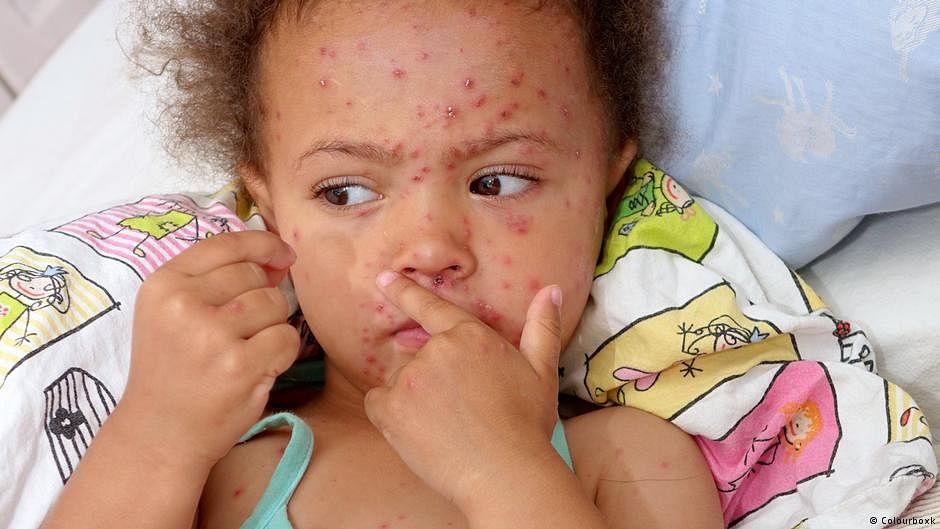In the first six months of the current financial year from April to September 2022, India has already registered the highest number of measles cases, which stands at 9,489, according to the data put out by the US Centers for Disease Control and Prevention (CDC). Somalia follows India with 8,435 measles cases and Yemen with 6,478. Pakistan is seventh on the list with 3,635 cases.
This is based on the provisional data based on monthly data reported to WHO (Geneva) as of early November 2022. Almost 41 countries have already put off, or may put off, their measles campaigns for 2020 or 2021 due to the COVID-19 pandemic, CDC reported. This report has come at time when there has been a measles outbreak in Mumbai with 126 registered cases and seven suspected deaths so far.
At least 99 children have been found infected with the viral disease since September and 126 since January this year, reported the Brihanmumbai Municipal Corporation (BMC) bulletin. As per its bulletin, 61 children were admitted to the Kasturba Hospital with measles-like symptoms between November 4 and 14. Twelve of them were hospitalised on Monday, it said.
In the past, the government had come out with measles-rubella vaccine campaign which yielded good results. Measles had almost gone. “During Covid-19, the primary vaccination had been affected.
Children should have taken the first dose at nine months and the booster at 18 months, but most haven’t. As a result, immunity is waning. When immunity is on the wane, children get measles,” said Dr Bakul Parekh, former president of the Indian Academy of Pediatrics.
Children are now stepping out after two years. If a child contracts measles or any other viral infection, said Dr Parekh, it will spread quickly amongst children with low immunity. “Children of lower economic classes have suffered from under nutrition during this period and children of higher economic classes suffer from over nutrition leading to obesity.
Both of these result in a weak immune system,” he added. This six-month average is woefully close to the annual measles figures of 2019 and 2020. The National Health Portal states that there were 12,894 cases in 2019 and 12,081 in 2020.
The final number is likely to be higher because several states including Chhattisgarh and Madhya Pradesh had not reported the registered cases in 2020. However, WHO figures state that India had registered only 5,700 measles cases in 2021 and 5,604 in 2020. Measles is described as a highly contagious air-borne viral disease, which affects mostly children.
It is transmitted via droplets from the nose, mouth or throat of infected persons. Initial symptoms, which usually appear 10–12 days after infection, include high fever, runny nose, bloodshot eyes, and tiny white spots on the inside of the mouth, states WHO. The National Health Family Survey 2019-21 (NFHS-5) highlights that only 31.
9% of children between the age bracket 24-35 months have received a second dose of measles-containing vaccine. The percentage (87. 9%) is higher amongst children in the age bracket 12-23 months who have received the first dose of measles-containing vaccine.
A report in medical journal The BMJ states that National Health Mission’s health management and information system reported a substantial decrease in routine immunisation services relative to the previous year. Coordinated campaigns across India targeting children who missed critical routine vaccinations during the national lockdown, as well as targeting low-coverage areas, could prevent additional public health disasters. Prioritising measles vaccine catch-up would be most prudent given the outbreak potential with even marginal reduction in herd immunity, stated the writers.
This is a vaccine-preventable disease, pointed out public health researcher Dr Anant Bhan, so there is a need for us to focus on any lags which happened during the pandemic. It is not just in India; routine immunisation was lagging in many other parts of the world. “In the interest of children’s health, we must increase surveillance especially in areas outbreaks have been reported.
If this is happening with measles, it could be happening with other vaccine-preventable diseases as well,” added Dr Bhan. Moving forward, there is a need to figure out mechanisms that will help regulate systems so that even if there are health emergencies, routine services such as vaccinations don’t get affected in a way that happened during the Covid-19 pandemic, he underscored. The World Health Organisation had adopted the regional goal of measles elimination by 2020, but it has now been revised to 2023 as COVID-19 pandemic had a significant impact on measles elimination efforts.
The coverage of first dose of measles containing vaccine across south-east Asia has shown a significant decline to 88% in 2020 from 94% in 2019. In 2018, it was 100 per cent. The coverage for second dose of measles containing vaccine declined to 78% in 2020 from 83% in 2019.
This is well below the 95 per cent recommended by WHO to protect against measles. .
From: nationalheraldindia
URL: https://www.nationalheraldindia.com/india/india-becomes-measles-capital-of-the-world-registers-highest-number-of-cases-this-year



